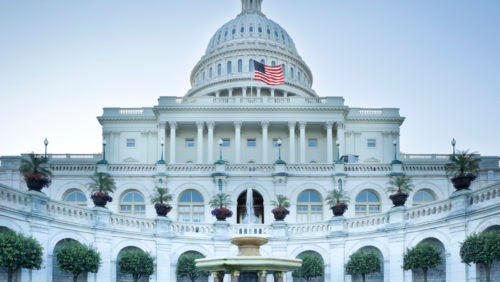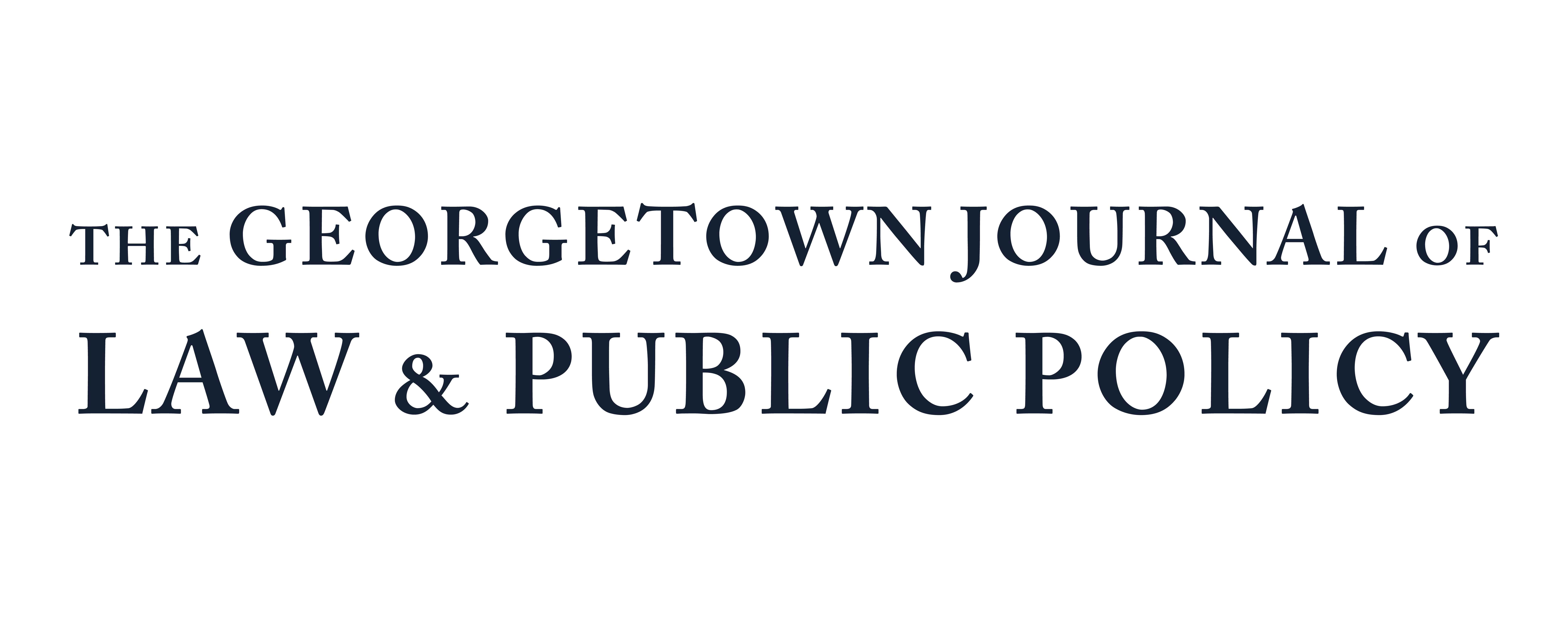A Former Congressional Staffer’s Plea to Judges: Do Not Rely on Legislative History
September 27, 2021 by kgw40

By Tina Seideman, Georgetown University Law Center '22
INTRODUCTION
I am not the first, nor will I be the last, person within the legal profession to look down on legislative history as a tool of statutory interpretation. The late Justice Scalia famously derided the use of legislative history, calling it illegitimate. His distaste for modern legislative history was so strong he famously refused to join a footnote in Associates Commercial Corp. v. Rash, 520 U.S. 953, 963 n.4 (1997), which analyzed the legislative history of the provision at issue. He otherwise joined the entire opinion. The Republican Ranking Member of the Senate Committee on the Judiciary, Senator Chuck Grassley, disagrees with Justice Scalia on this issue.
Ironically enough, Justice Scalia also used or consented to the use of legislative history at times. He used portions of The Federalist in his opinion in Printz v. United States, 521 U.S. 898, 978 (1997), to analyze the separation of powers as understood by the Framers. He joined (though did not write) the majority opinion in Mallard v. United States District Court for the Southern District of Iowa, 490 U.S. 296 (1989), which looked at the legislative history of 28 U.S.C. § 1915(d) from 1892. He also joined a unanimous Court opinion in Community for Creative Non-Violence v. Reid, 490 U.S. 730 (1989), which resorted to analysis of the Copyright Act’s legislative history.
(For an interesting breakdown of the use of legislative history during the 1988–89 term, check out former Chief Judge Patricia M. Wald’s piece, The Sizzling Sleeper: The Use of Legislative History in Construing Statutes in the 1988–89 Term of the United States Supreme Court, 39 Am. Univ. L.R. 277 (1990). And for a fascinating analysis of Scalia’s effect on the use of legislative history by pre- and post-Reagan judges, read The Paradoxical Impact of Scalia’s Campaign Against Legislative History by Stuart Minor Benjamin and Kristen Renberg, 105 Cornell L.R. 1023 (2020).)
I am not saying here that the use of legislative history is unconstitutional—I will leave that discussion for another time. I simply wish to express that, in my experience, legislative history is unlikely to reveal much useful information about the congressional intent and purpose behind a piece of legislation. And what judges can find is often warped. Judges should refrain from using modern legislative history and, if they do, they should only use it as a tool of last resort.
THE COURT SAID WHAT!?
As a former Congressional staffer, I was shocked to learn upon coming to law school that judges regularly rely on what Congress said and did when evaluating a piece of legislation. Much of what Congress does, especially in the House of Representatives, is political gesturing. And the evidence that courts lean into when evaluating legislative history—committee reports and hearing testimony, floor speeches and debates, and presidential messages—are hardly indicative of congressional consensus (even a consensus among those who vote the same way for the bill).
- Committee reports are rarely analyzed by members of the whole body when deciding whether or not to vote for a particular bill. These comprehensive reports, produced by the staff of the committee which has passed the legislation, share details about the majority party’s interpretations of the problem the bill is trying to solve and what the bill purports to do in each portion. However, interpretations by committee staff and the information they share in the report may or may not have anything to do with why a member or caucus or party voted for a bill.
- Committee hearing testimony is also largely useless. Questions asked by Members have become increasingly politicized to the point of futility. When members ask leading questions and fail to allow witnesses to fully and substantively answer them, even transcripts read like the political propaganda that many hearing video clips eventually become. When the occasional bipartisan or non-controversial hearings do occur, they usually have witnesses from both the majority and minority parties. Hearing testimony then is often inconsistent: one witness says Reform A is best; another says Reform A ignores Issue X and so Reform B is ideal; and yet a third says that the real issue is Issue Y, which would be solved by Reform C. When reading such a transcript, what is a judge supposed to think? Such testimony cannot possibly provide reliable information as to why Congress as a whole decided to vote for or against a certain piece or provision of legislation.
- Floor speeches and debates are given by a member on a topic and can provide interesting background and context on a particular issue. However, judges can isolate one or two members’ floor speeches and impart an individual’s interpretation of pending legislation onto the entire body of Congress. This can be particularly true for legislation considered small or non-controversial, because fewer members will speak on the issue or offer counterarguments to their colleagues. Just because one Member thinks that Issue X will be solved by Bill Y does not mean that solving Issue X is representative of Members’ intent(s) in passing Bill Y.
ADDITIONAL THOUGHTS
Coming back to Justice Scalia’s apparently inconsistent treatment of legislative history, William Eskridge, Jr., has pointed out that Scalia (and Thomas, for that matter) treat cases of constitutional interpretation different from those of statutory interpretation. Scalia is critical of legislative history in statutory interpretation cases, but he finds legislative history often decisive in constitutional cases. (Eskridge’s piece is entitled Should the Supreme Court Read The Federalist but Not Statutory Legislative History, and can be found in Geo. Wash. L. Rev., volume 66, 1301 (1997-19)).
I find this distinction compelling. The Federalist Papers do, in fact, provide great context as to what certain Framers envisioned or were wary of when they wrote various provisions of the Constitution and Founding Era legislation. The Declaration, too, provides the context behind the Constitution and Framers’ purposes. Floor debates surrounding the ratification of the Fourteenth Amendment reveal to us what privileges and immunities its drafters and advocates believed were included in its text. But modern committee reports, debates, and floor speeches? I struggle to find these relevant, much less compelling.
And yes, Congress shoulders some of the blame here. Members should be crafting and passing legislation that is clear and easy for the executive and judicial branches to apply. They certainly should not be voting on what they have not read (like committee reports). If Congress perhaps placed more weight on crafting a clear and reliable legislative history for the courts, these sources could become truly useful for statutory interpretation. But in all reality and practicality, bills that are passed by either or both houses are often not fully read and occasionally poorly verified. (One story shared among staffers during my time on the Hill involved a small bill that included the geographic coordinates for a plot of land. The bill passed a House committee, was passed by the House, and then was sent to the Senate. The Senate committee of jurisdiction passed the bill. It wasn’t until the bill was to be voted on by the Senate as a whole that a staffer plugged the coordinates into the internet and discovered that the land coordinates in the bill were incorrect.)
CONCLUSION
I have obviously never been a judge, so I have never faced the unenviable task of being asked to interpret vague or unclear legislation passed by Congress. (But if you’re thinking of nominating me—I’m in!) My views on this issue are certainly subject to change as the dynamics of Congress and statutory interpretation evolve, and I expect to have a more holistic perspective on the issue following my clerkship. But for now, I maintain that legislative history, at least that of the modern era, ought to be avoided or used only as a last resort by the courts.
For comments, questions, or to continue this conversation with the author, please reach out at cas479@georgetown.edu.

